On November 15, 2015, Mexican ranchera music lost one of its early icons and a major pioneer in promoting this music in the United States. Martín Becerra – trio and duet leader, master of ceremonies, and radio personality – left a unique legacy in the history of Mexican music.
“Becerra… is just about Mr. Spanish Language Entertainment himself. Who is he and what does he do? Any Latin American residing in or near the city of Los Angeles can tell you.”
Los Angeles Examiner — Sept. 24, 1953
José Martín Becerra Ochoa was born in Ocotlán, Jalisco, a village at the northeast end of Lake Chapala, on July 2, 1912. His father, Casimiro Becerra, made saddles for a living. His mother, Virginia Ochoa, taught him to play the guitar at an early age. She was the one who encouraged her gifted son to move to Guadalajara, assuring him that, “If you stay here in Ocotlán, you’re never going amount to anything.”
Los Cancioneros del Sur:
Domingo Sánchez, Martín Becerra, and Gregorio Sánchez.
It was in Guadalajara that Martín made his radio debut in 1932, at age 20, singing on station XED. Encouraged by his modest success, he soon moved to Mexico City in search of greater opportunities, with the dream of someday singing on Mexico’s most prestigious station, XEW. His first big break came in 1935, when he toured northern Mexico and the southwest U.S. with popular Colombian-born singer-actress Sofía Álvarez, but it wasn’t until 1938 that he finally made his debut on XEW, as a member of the trio Los Cancioneros del Sur.
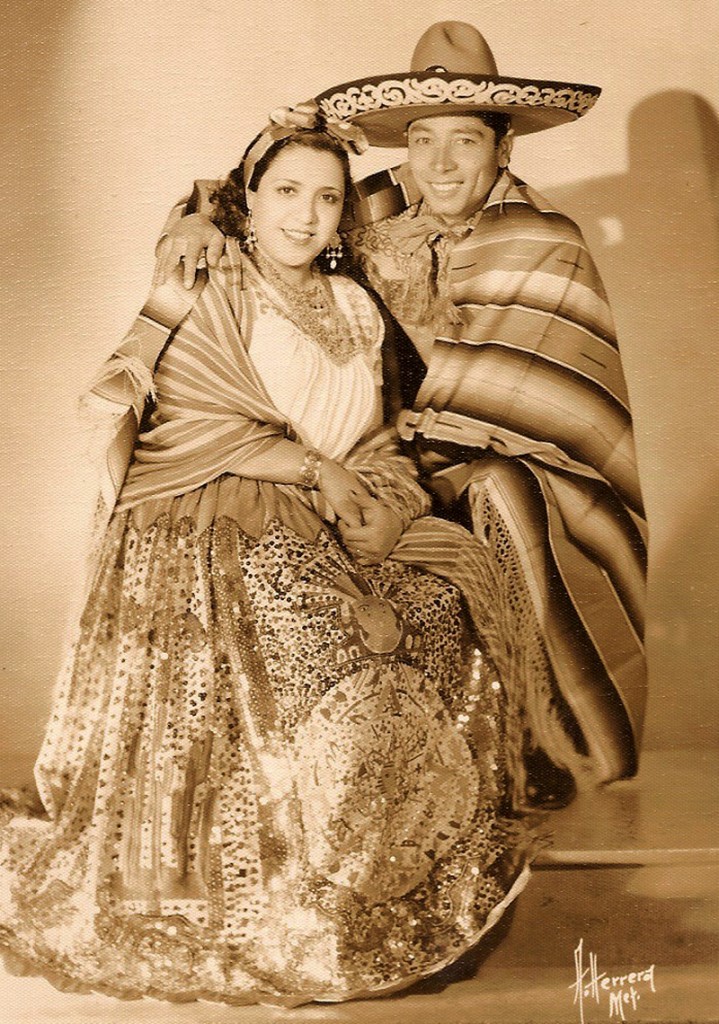
Martín y Eloísa
In 1939, at the suggestion of Guillermo Kornhauser, artistic director of Discos Peerless, Martín formed Martín y Eloísa, a vocal duo featuring himself and Eloísa Gómez Torres of the trio Las Tres Morenas. As don Martín told the story, Kornhauser’s idea was to have a duet on his label that would compete with the popular duo of Ray y Laurita, stars of rival company RCA Victor Mexicana (Peerless and Victor were the two record industry giants in Mexico at that time). Interestingly enough, Eloísa had previously been Ray Pérez y Soto’s singing partner in the duet Ray y Eloísa, before he teamed up with Laura Rivas to form the famous Ray y Laurita.
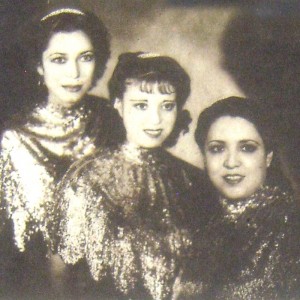
Las Tres Morenas
The duet of Martín y Eloisa was highly successful, and over 100 songs by them were released on the Peerless label between 1939-42. After a stroke prematurely forced Eloisa to retire from singing, Martín replaced her with another member of Las Tres Morenas, Magdalena (or Marta Elena) “Malena” Pérez Tejada, and the new duo became known as Martín y Malena. Not only did their two voices blend exceedingly well, but the duet’s name proved to be unusually appealing and memorable.
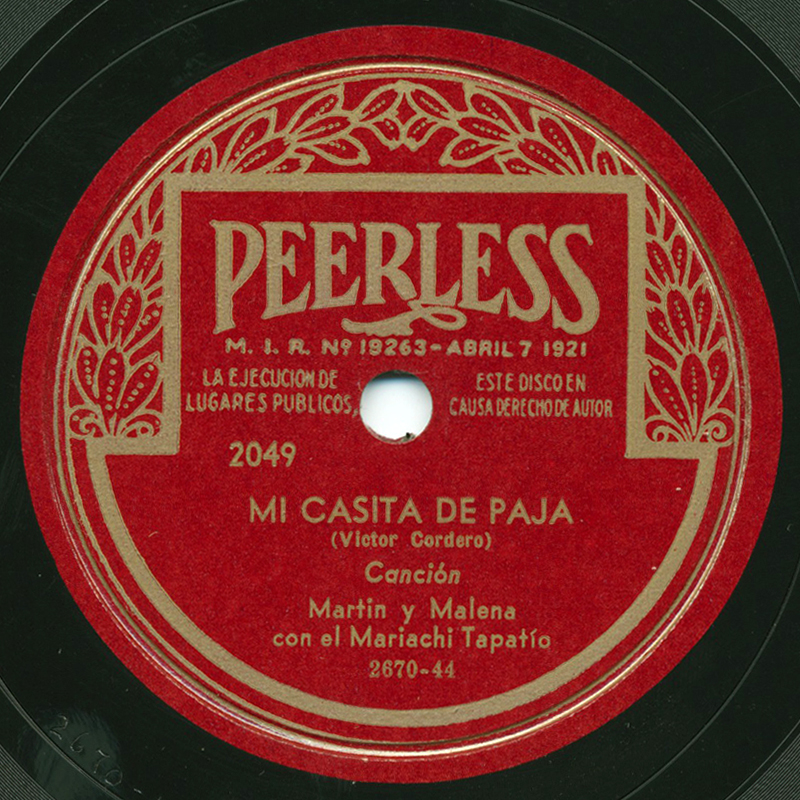
The original 1944 78-rpm release of Martín and Malena’s biggest hit, Víctor Cordero’s “Mi Casita de Paja.” The flip side is “Mi Virgen Ranchera,” Chucho Monge’s popular hymn to Mexico’s patron saint. This disc was one of Mexico and the Mexican diaspora’s biggest-selling vernacular records of the 1940s. Reissued as a 45-rpm single in the 1950s, it remained a favorite for decades. Martín y Malena rerecorded “Mi Casita de Paja” twice — first with Mariachi Vargas and later with Mariachi Los Camperos — and Martín used it as the theme song for his radio programs throughout his career.
Martín y Malena was one of the most popular early ranchero vocal duets. They were even more successful than Martín y Eloisa, and recorded even more songs for the Peerless label than their predecessor duet. When Malena married and decided to retire from singing, she gave Martín rights to the name Martín y Malena, which he continued using for decades. Some of the “Malenas” he performed and recorded with over the years include Catalina Hernández (of the Hermanas Hernández), Paz Águila (of the Hermanas Águila), María Padilla (of the Hermanas Padilla) and Lily Ayson. Fans of this music consider Martín y Malena one of the great duetos rancheros of all time.
The original Trío Guayacán:
Antonio Soto, Martín Becerra, and Alfonso Saldívar
During the early 1940s, Martín Becerra alternated his vocal duet engagements with those of the trio Los Cancioneros del Sur. At the time Martín left that trio, in 1945, RCA Victor recording artists Hermanos Martínez Gil — three guitars and voices, plus a muted trumpet — were all the rage. Since rival Discos Peerless had no group of that nature on their label, Guillermo Kornhouser, much as he had done several years earlier with Martín y Eloísa, asked Martín if he would form an expanded trio to compete with the Martínez Gil brothers. Martín jumped at the opportunity and formed Trío Guayacán, featuring himself as lead singer, and including two other guitarists. As the Hermanos Martínez Gil had done before him, Martín borrowed Miguel Martínez from Mariachi Vargas de Tecalitlán to play trumpet. Between 1948 and 1949, 24 78-rpm records by Trío Guayacán were released on the Peerless label, all of which feature Martínez on muted trumpet.
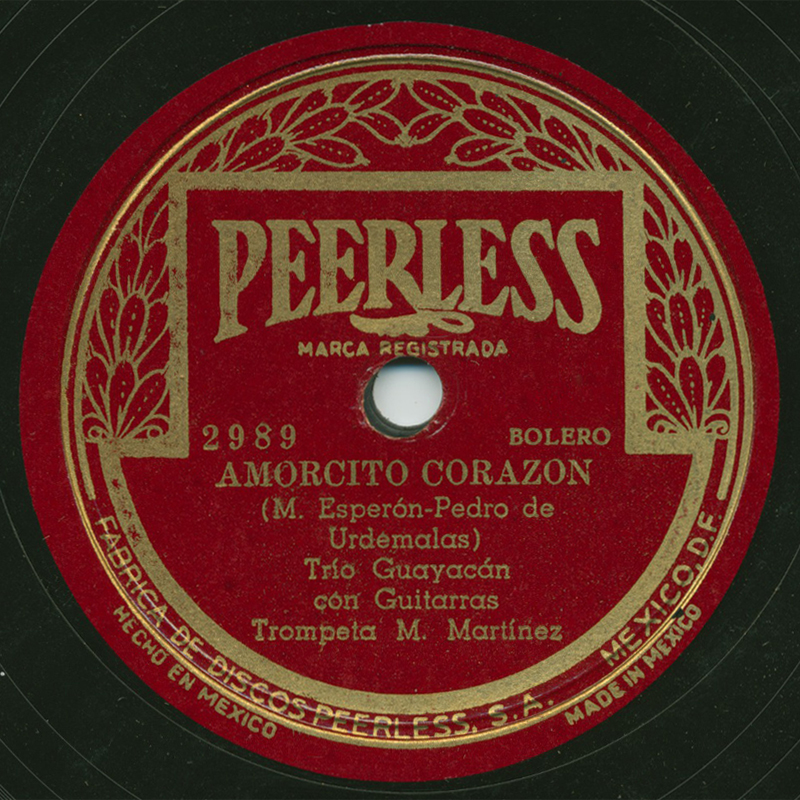
One of the 48 songs Miguel Martínez recorded with Trío Guayacán, “Amorcito Corazón“ was immortalized by Pedro Infante in the classic 1948 film Nosotros Los Pobres.
In 1946, at the Mason Theater, Martín y Malena gave their first performance in Los Angeles, California, accompanied by Mariachi Vargas de Tecalitlán. It was there that Martín met the theater’s owner, entrepreneur Frank Fouce Sr., who would remain a lifelong friend and associate. Martín y Malena and Trío Guayacán subsequently toured the southwestern U.S. with Fouce’s artistic caravans, where Martín doubled as master of ceremonies.
José Contreras, Miguel Martínez, Martín Becerra, María Hernández, Rubén Fuentes, Catalina Hernández.
Impressed by Becerra’s multiple talents, Frank Fouce offered versatile Martín ongoing work in his theaters and caravans. In 1949, he accepted Fouce’s offer and immigrated permanently to the United States, remaining in the Los Angeles area for the rest of his life. In the beginning, his main job as master of ceremonies was announcing acts at Fouce’s Mason and Maya theaters. Eventually Fouce moved his shows to the legendary Million Dollar Theater — which became known as America’s mecca of Mexican popular entertainment, “La Catedral del Espectáculo en Los Ángeles” — and where Martín was the official announcer for over three decades. For an entire generation of Mexican immigrants and other Latinos, Martín Becerra was an inseparable icon of Fouce’s variety shows. A partial list of mariachi-accompanied artists he introduced over the years includes Jorge Negrete, Pedro Infante, Pedro Vargas, Miguel Aceves Mejía, José Alfredo Jiménez, Amalia Mendoza, Lola Beltrán, Antonio Aguilar, Flor Silvestre, Javier Solís, Lucha Villa, Vicente Fernández, Juan Gabriel, and Joan Sebastian. He also emceed the legendary mano-a-mano competitions between mariachis Los Camperos and Vargas de Tecalitlán, and between Los Camperos and Mariachi México de Pepe Villa.
At the beginning of his radio career, circa 1949
Yet another facet of Martin’s career began shortly after his arrival in Los Angeles, when disc jockey Carlos Montaño invited him to host a radio show on station KAGH. As Martín recounted to me, “I was never afraid to try new things, so I told him ‘sure’!” The show, La Hora de Los Ángeles, was one of the pioneer Spanish-language daily radio programs in the United States, and established Martín Becerra as a popular radio personality in the Southern California Hispanic community. Stints at KWKW, KALI, KROQ, and XPRS followed. When Martín finally retired from radio on January 1, 2001 — the first day of the new millennium — he was 88 years old and had been on the air continuously for nearly 52 years.
On the radio in the 1980s
Shortly before Martín’s retirement in 2001, Virginia Ochoa, his wife of 55 years, passed away. In 2006, he married Carmen Moisa, a widow 15 years his junior. They traveled together extensively, making trips to Europe, Israel, Hawaii, and many parts of the USA. It wasn’t until age 98 that Martín finally gave up driving. Before that, he drove himself and Carmen everywhere. A gentleman in the finest tradition, he always opened the door for her.
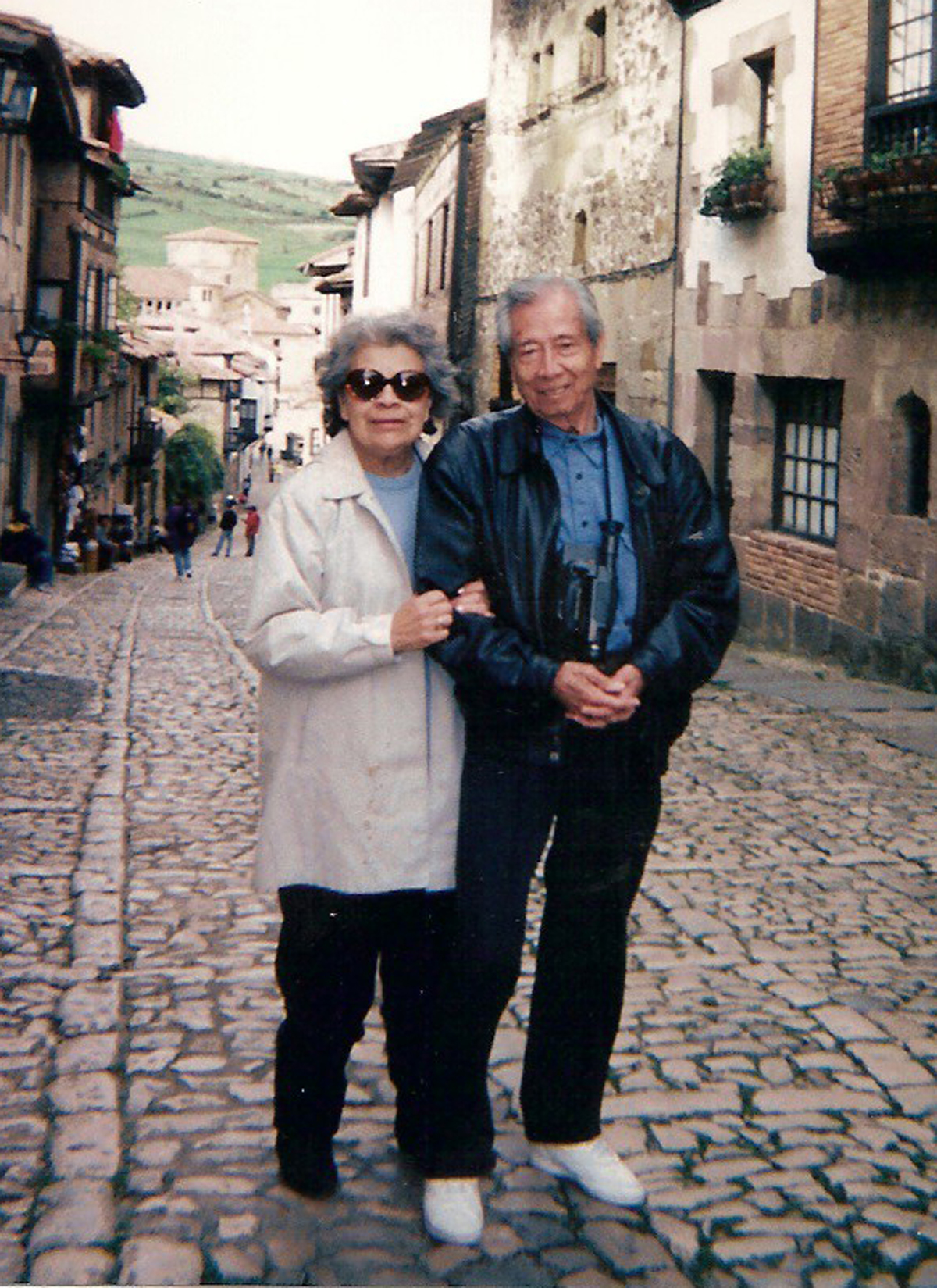
After Carmen died in late 2014, Martín’s health declined rapidly. He spoke less and less, and became confined to a wheelchair. The last time I visited him at his Monterey Park home, in October, his daughter Georgina and I sat together beside her silent father and chatted in the warm sun of the rose garden he loved so much. Certain I would never see him again, I said a prayer for his soul. Six weeks later, on November 19, 2015, almost exactly a year after his wife Carmen died, Martín Becerra passed away peacefully at home in his sleep, at age 103.
Although Martín probably never played in a mariachi himself, he was associated with mariachis throughout his career, and mariachi was his preferred musical accompaniment. The initial Trío Guayacán recordings of 1945 feature mariachis Güitrón and Perla de Occidente. The Martín y Eloisa recordings (1939-42) feature mainly an unidentified mariachi, while the Martín y Malena Peerless recordings (1942-1950) feature either Mariachi Tapatío Marmolejo, Mariachi Güitrón, or Mariachi Perla de Occidente. The popular 1950s RCA Victor Martín y Malena album features Mariachi Vargas de Tecalitlán. The many subsequent records Martín made in Los Angeles feature Mariachi Águila, Mariachi Los Camperos, and even a pseudo mariachi (Mariachi Azteca) comprised of orchestra musicians, with virtuoso Rafael Méndez on trumpet.
José Hernández, director of Mariachi Sol de México, who from an early age hung out backstage at the Million Dollar Theater, where his father and brothers played regularly, remembers don Martín vividly: “He was a sweet man who always greeted everyone with a smile, and he was especially nice to all the mariachi musicians.”
Given Martín Becerra’s long association with mariachis, I had expected a significant mariachi presence at his wake and funeral. To my surprise, none came to the viewing the night before, and only three of us were present among the 50 or so people who attended the funeral Mass and burial the following day. But upon reflecting, I realized my expectations had been unreasonable. When someone lives as long as Martín did, they outlive most of their contemporaries, as did he. Although his name had been a household word in Southern California Hispanic households for half a century, the current generation — with the exception of a few history buffs and record collectors — has no idea who he was or what he did.
Interment at The Resurrection Cemetery on Nov. 30, 2015.
Agustín Cervantes, María Padilla, Rubén Navarro, Jonathan Clark
At present, almost no information on Martín Becerra is available on the Internet or elsewhere, notwithstanding his enormous contributions to Mexican music and culture. Let’s hope this situation changes in the near future. In the meantime, a documentary featuring this legendary musical icon is in preparation. You can see a sample of it, as well as a historic newscast featuring don Martín, on YouTube.
May Martín Becerra — the multitalented adventurer from Ocotlán, Jalisco — rest in peace, and his memory live on.
—Jonathan Clark
Many thanks to the Arhoolie Foundation, Jaime Chapa, Pablo Dueñas, Fabricio Espasande, Omar Martínez, María Padilla —and, last but not least, the late Martín Becerra — for their invaluable contributions to this article.

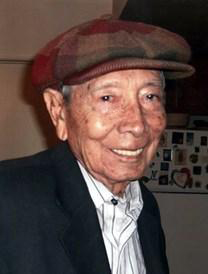
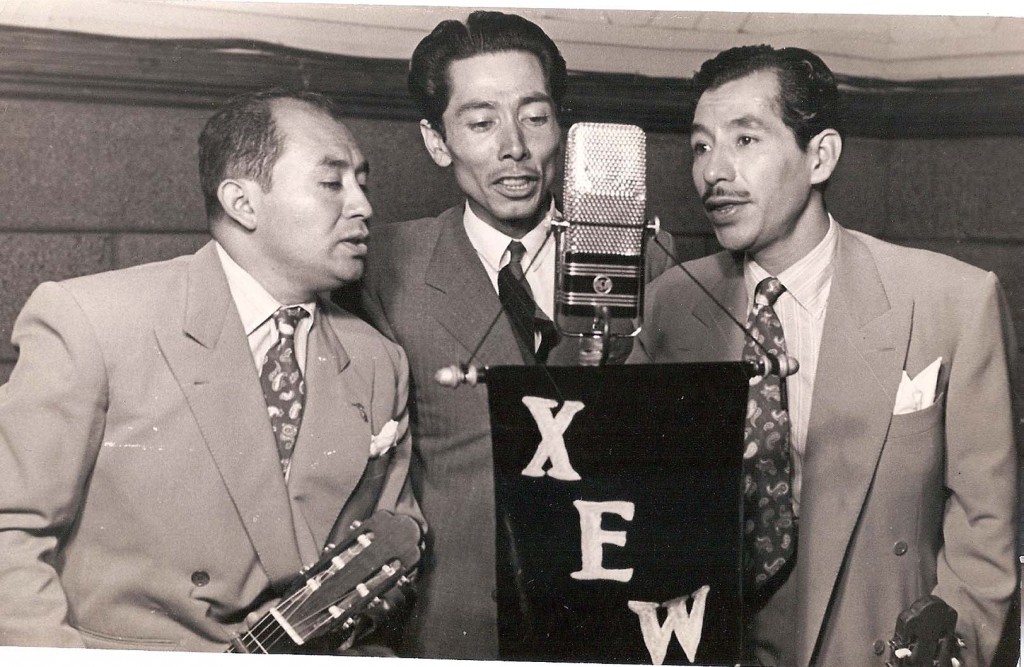
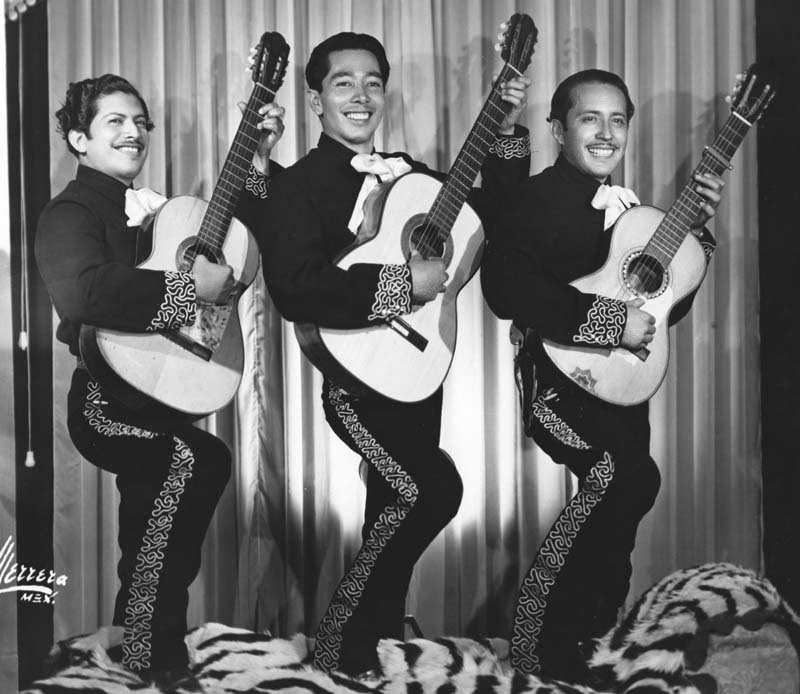
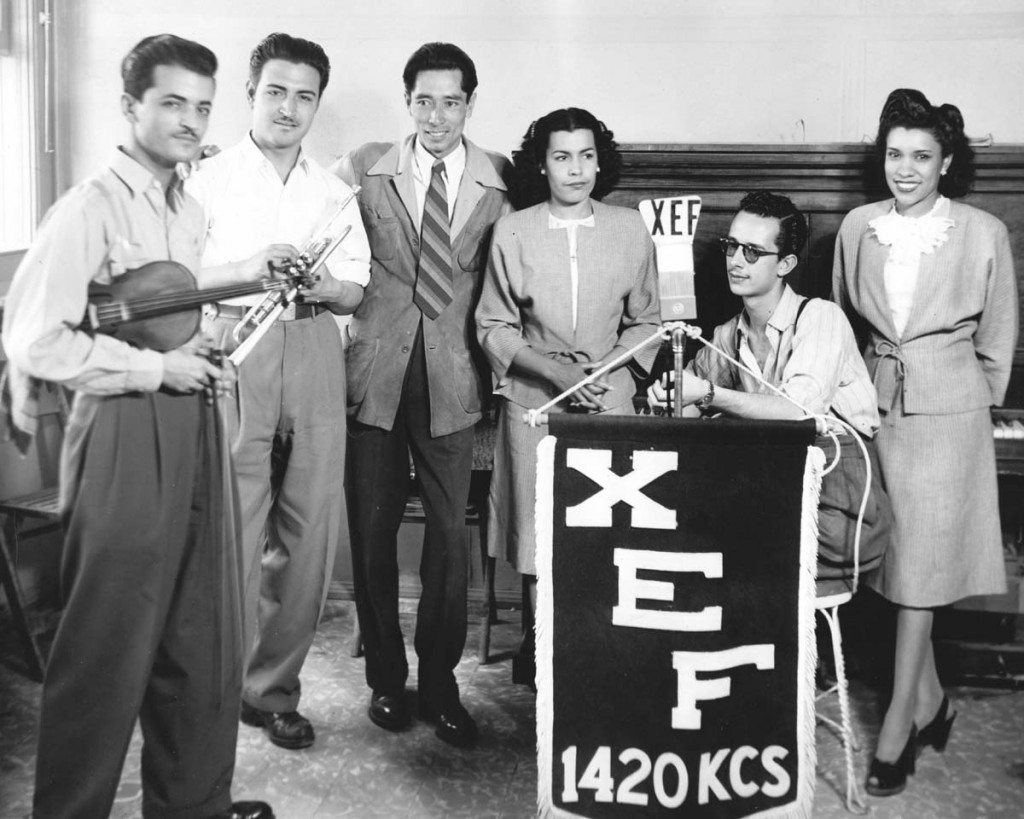
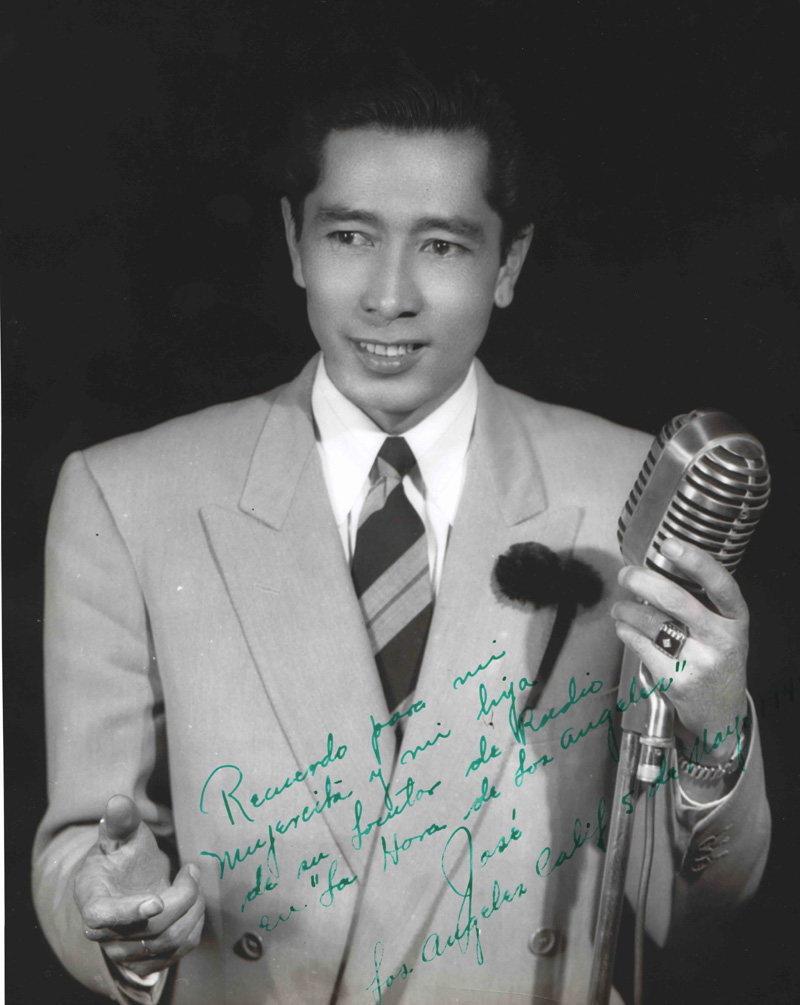
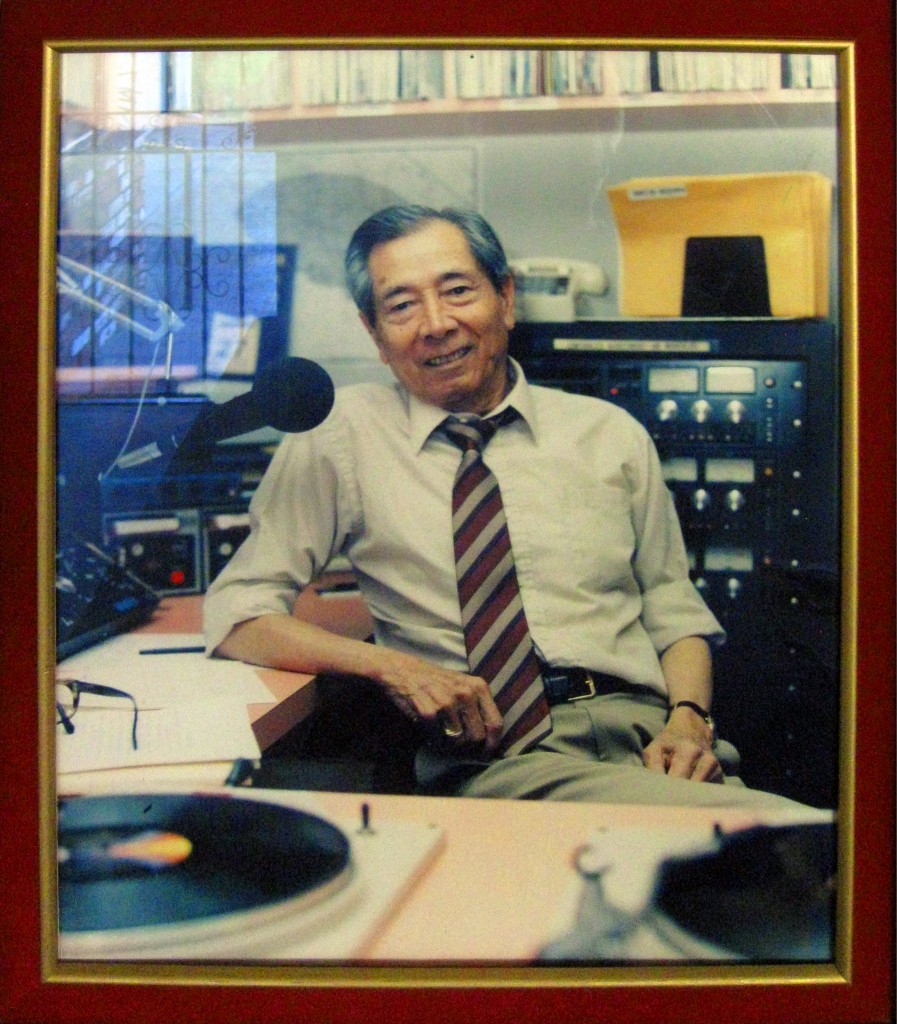
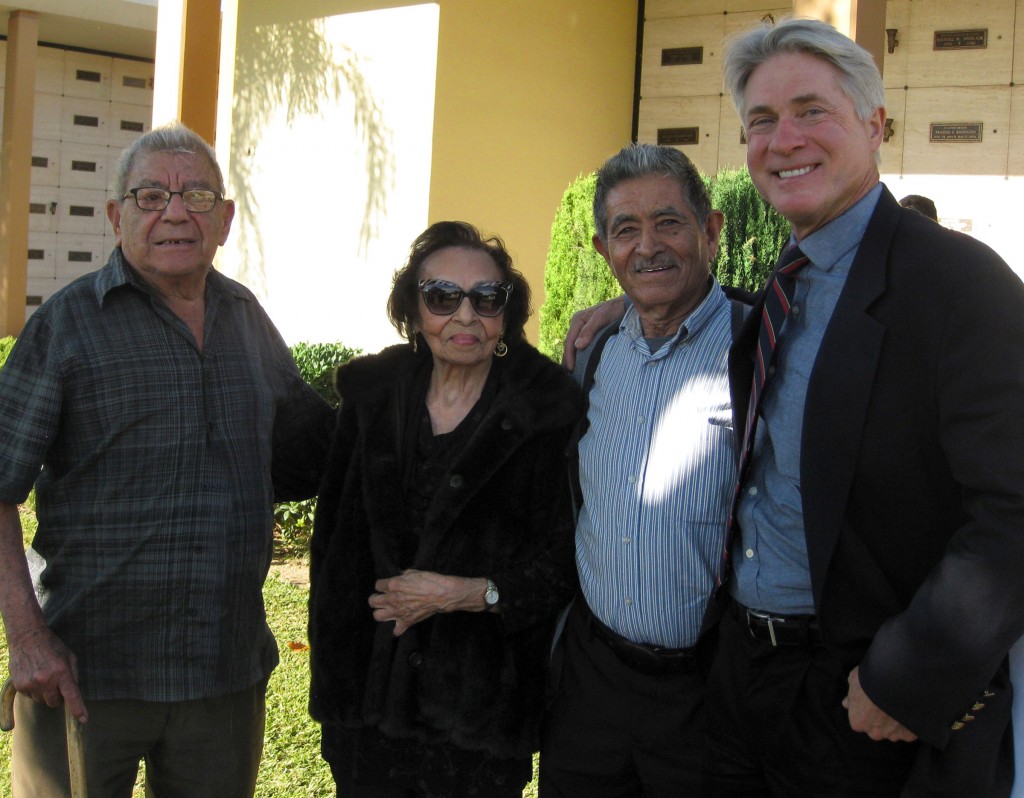
Martín Becerra was very good friends with my father and brothers, not to mention all the mariachi musicians that performed at the one and only Million Dollar Theatre. I met him when I was only about 8 years old, and he was always extremely nice to me. Don Martín will be missed by all of us who got a little taste of what was a truly a beautiful era in the history of mariachi music.
Attached is a photo of me backstage at the Million Dollar in 1969, when I was about 10, with my father Esteban, brothers Beto, Chencho, Pedro, and Toño, and Heriberto Molina “El Cura”. Mariachi Vargas and Mariachi Los Galleros were both on the bill that week.
I was born and raised in Los Angeles and remember Don Martín Becerra well. My family would go frequently to the Million Dollar for the “variedad” which was always hosted by him. We also used to listen to him on the radio, on KWKW and KALI. This is how I got hooked on mariachi music. I have fond memories of those times and miss them, especially since Los Angeles no longer has a radio station that plays rancheras primarily.
Thank you, Jonathan Clark, for sharing your story of Don Martín. May he rest in peace.
Dear Mr. Clark,
I’d like to congratulate you on a very well written piece on this great man, Mr. Becerra. I performed a search on him because I just got back from Jalisco and I always wondered what happened to the man with the golden voice, and your article was the first I came across. It was very informative and contained great pictures of the man and legend. It wasn’t until I heard Mr. Becerra on the radio as a kid that I took interest in radio and ranchera music. Having been born in the US to parents who immigrated to the US, it was easy to get lost in that tug of war of English and Spanish music, but I always felt that mariachi music was in my heart, and I continue to have a preference to mariachi music. Mr. Becerra’s career will never be matched and the influence he had on Latino’s in the last 65 years will go down in history. Thank you so much for this piece and for reminding us of how great this man was!
As a young boy, I remember wailing up to Mi Casita de Paja as my mom and dad were getting ready for work. Thank you for this article. It brought back beautiful memories of Martín Becerra and my mom and dad.
Sorry to hear that he passed away. I loved to hear his voice on the radio and it brings good memories of my Mom and Dad. They loved Mi Casita de Paja. I always saw him at the Million Dollar Theater back in the sixties. May he Rest In Peace.
My parents were part of the many fans of Mr. Becerra, and also became good friends with him and his wife during a European tour in 1985. I lost my dad in July, 2016 at the age of 101. I still remember my dad’s last conversation with him. La Casita de Paja was his favorite song ever.
I remember my mother listening radio KALI and Martín Becerra in the ’60s. Mom would have been 105 this year. Mr Becerra’s personality brightened the lives of a whole generation.
I remember listening to him every morning at radio KALI. I just arrived from Mexico, didn’t know anybody and felt very lonely. I didn’t know English and always looked forward to the morning radio program and to listen to Martín Becerra signing with Mariachi Los Camperos. He was a true gentleman in all extension of the word. When anyone requested a song that he didn’t think was appropriate for the audience, he refused to play it. I still have a record of Martin and Malena. It brings me very good memories. I’ll never forget how listening to him made me feel less lonely. Rest In Peace, Mr. Becerra, and thank you for the good memories.
Thank you, Mr. Clark for such a great article on a legend, Mr. Becerra. I hope Netflix takes an interest on this wonderful man and make a film displaying his accomplishments and contributions to music, culture and the impact he had as a DJ in Southern California.
Since I heard the song, Arrollito, I fell in love with the voices of the Cancioneros del Sur. In my opinion, no one matches their voices; they are the best of the best. This is the first time I have read an article on one of the leading members of the group. It is true that hardly any information is found on the net about such incredible talent of this man. The first time I heard Arrollito on the radio in Mexico, I knew that it was exceptional. I made it a point to find it on the net years ago and listen to it even though I did not know the trio who sang it. Sad to say, I cannot find it anymore on the net, there are others of the Cancioneros del Sur, beautiful songs, but not Arrollito. I wish so very much that those who have the song by this trio would put it up for us to truly savor with our minds and soul what is beautiful and incomparable.
Thanks for your kind comments on Martin Becerra and the legendary Cancioneros del Sur. If you do a search using the spelling “Arroyito,” you’ll find this song in many places on the internet.